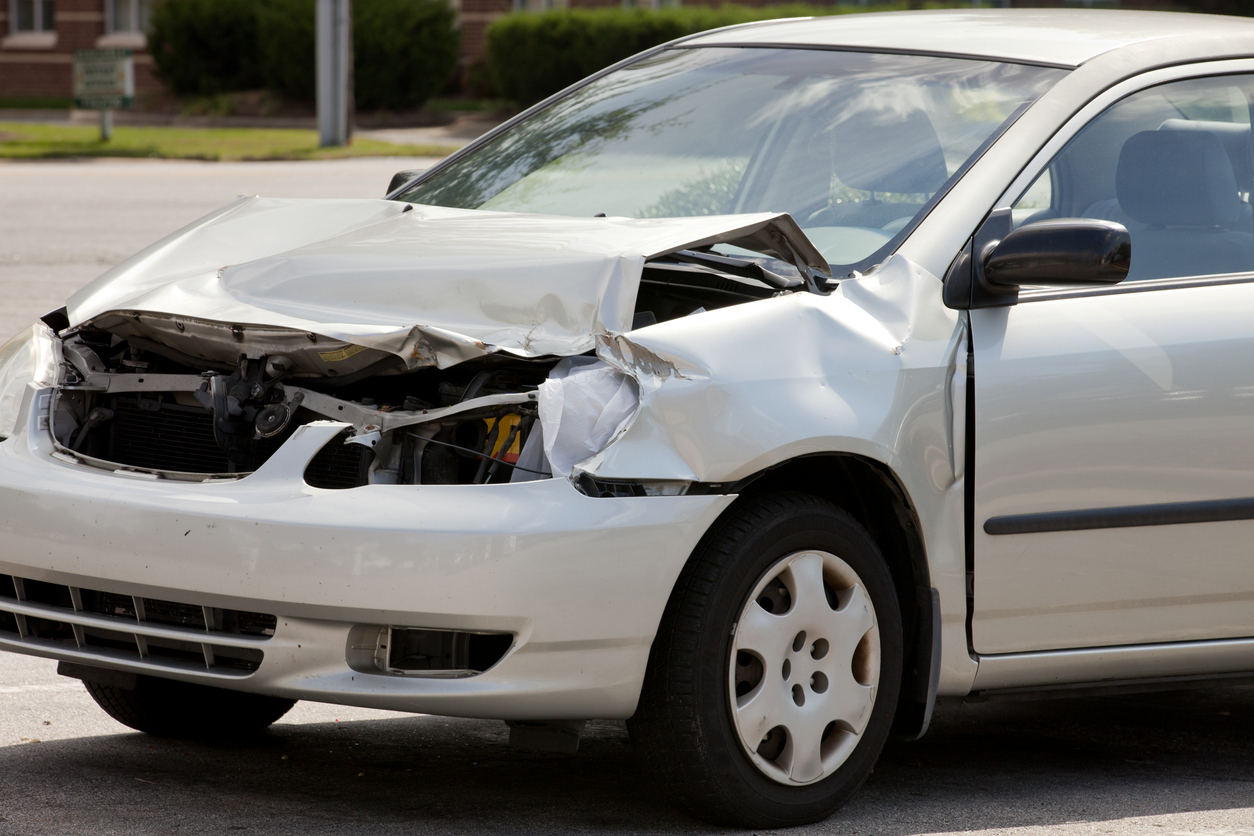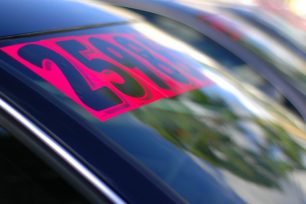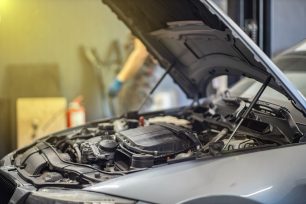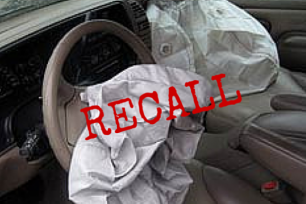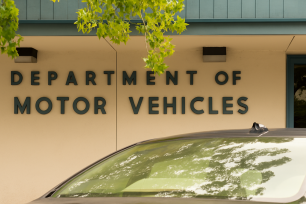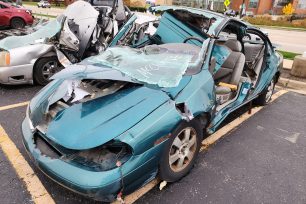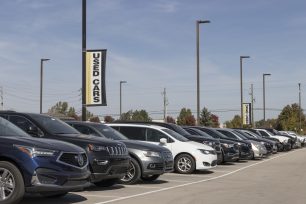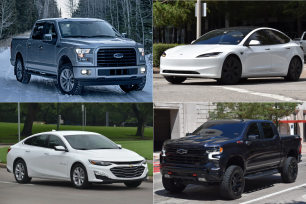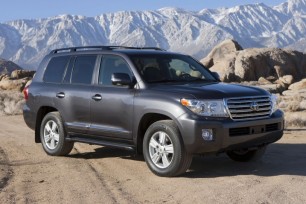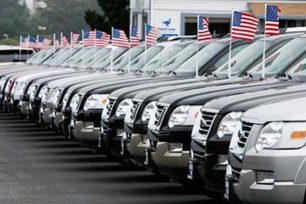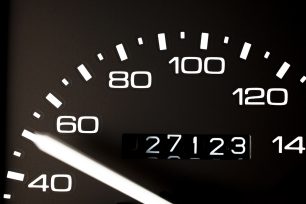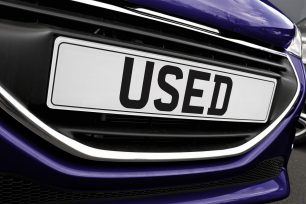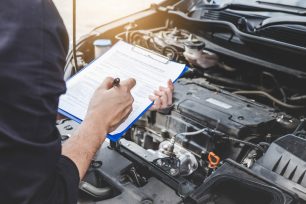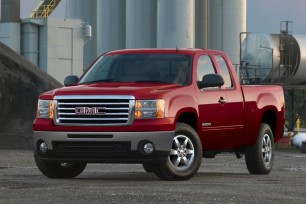A car’s title is a critical document that not only verifies ownership but also reflects a vehicle’s current status and, potentially, any substantial damage or negative conditions it may have suffered in the past. Two common examples are “rebuilt” and “salvage,” terms indicating that at some point in a vehicle’s past an insurance company deemed the cost of repairing it too high relative to its value. Let’s take a closer look at what circumstances can lead to a rebuilt title status.
What is a rebuilt title?
A rebuilt title means the car was once declared a total loss (usually because estimated repairs topped a significant portion of its value), and it was issued a salvage title. It was then repaired and passed a state inspection that deemed it road-worthy again. The damage could have come from a collision, flood, fire, vandalism, or even a theft recovery. A rebuilt brand is meant to be permanent; it never disappears even after flawless repairs. While some rebuilt cars were merely damaged cosmetically, others may have suffered severe structural harm, so an independent inspection by a trained professional is necessary to separate minimally damaged bargains from severely damaged money pits that are likely to experience recurring issues after purchase.
Why do I need to check for a rebuilt title?
Hidden structural cracks, poorly aligned subframes, and dormant electrical gremlins are common in rebuilt vehicles despite passing a state inspection. The “rebuilt” brand slashes resale value by 20% to 50%, shrinks the buyer pool, and can trigger higher insurance premiums or outright denial of comprehensive coverage. Worse, title-washing can conceal the brand entirely if the car crosses state lines. If, as a used car buyer, you fail to verify a vehicle’s title history you risk overpaying for a rebuilt car while also forfeiting the legal leverage consumer-protection statutes provide.
What is the difference between a rebuilt vs. salvage title?
A salvage title means a drivable car can’t be driven on public roads until it is repaired and inspected. During that limbo it is fit only for parts or a full repair of all damage. Once repaired and inspected, the same car earns a rebuilt title and can be registered for road use. Legally, a rebuilt car is street-legal, and it may even be mechanically flawless, but from a financial, market-value perspective it will never equal a clean-title counterpart with no salvage history. Expect lower resale value, limited financing options, and steeper or restricted insurance coverage—realities that follow the car for life.
How can a vehicle title be “washed”?
Because you need a title (in most states) to transfer ownership and register a car, unscrupulous sellers may try to remove a rebuilt title “brand” (or status). Beyond the owner’s name, the title lists the vehicle’s VIN (vehicle identification number), year, make, and model. The title also lists any major events that have happened in a car’s past through what’s called a title “brand.” Examples of title brands include salvage, rebuilt, lemon, or flood. Because every state writes its own rules, one state’s DMV might allow a brand to be removed where another would never consider it. This patchwork creates the loophole called title-washing, in which a damaged car with a salvage, theft, or flood branded title, migrates to a more lenient state and re-emerges with a deceptively “clean” title.
What due diligence should I perform before buying a car with a rebuilt title?
Every used car buyer should know a vehicle’s history before purchase: Pull an
NMVTIS
title report to check for salvage or rebuilt data, then layer on a vehicle history report from
Carfax
,
AutoCheck
, or iSeeCars’
VIN History
Reports for granular accident and maintenance records. Next, hire an ASE-certified mechanic for a pre-purchase inspection that covers frame measurements, suspension points, diagnostic-scanner codes, and evidence of flood intrusion like corrosion in the wiring harnesses. Also interview the seller and request before-and-after photos and itemized repair receipts. Finally, secure an insurance quote in writing; many buyers discover only at the DMV window that their new purchase cannot be insured for anything beyond liability.
What are my responsibilities after purchasing a rebuilt car?
Registration procedures differ by state, but most require the title, proof of repairs, and inspection documents. Keep digital and hardcopy records of every repair, part receipt, and inspection—future insurers, buyers, or even courts may demand them. Budget a contingency fund; rebuilt cars carry a higher chance of latent issues, especially those with flood or major structural history.
What are the resale value and financing realities of a rebuilt car?
Because lenders treat rebuilt cars as high-risk collateral, loans—if offered at all—on rebuilt cars usually require higher interest rates and shorter terms. And when it’s time to sell, the resale is an uphill battle: Many online marketplaces let buyers filter out rebuilt branded titles, and franchised dealerships can refuse them as trade-ins. The initial discount from buying a rebuilt car can be wiped out by these financing costs and the steep depreciation baked into the branded title status.
What legal recourse and consumer protections do I have?
Most states oblige sellers to disclose a rebuilt title, and failure to do so can open the door to fraud claims. However, once you sign an “as-is” purchase acknowledging the brand, lemon-law protection usually disappears because the original factory warranty died with the salvage declaration. In other words, the law helps only if the brand was hidden; it does not guarantee the quality of the repairs if the buyer has full knowledge of the brand before buying.
What are variations for a “rebuilt title” in different states?
Terminology is not consistent across states: reconstructed, revived salvage, or rebuilt may refer to the same status, and inspection rigor runs from cursory paperwork checks to full tear-downs. Because loopholes differ across states, always study both your current state’s DMV site and the state that last titled the car. Buyer tip: A recent relocation across state lines can be a component of a title-washing effort. If this has occurred it further increases the need for buyer due diligence as listed above.


